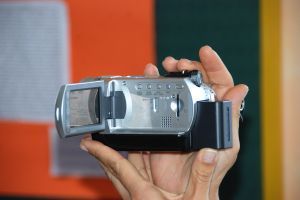I commented back in August of this year, on an article submitted by the editorial board of the Times of Trenton, regarding wearable body cameras for New Jersey police officers. My remarks were simple; It is time that all law enforcement in New Jersey be equipped with wearable video cameras that record all arrests and interactions with persons who are detained for any reason. A joint bill introduced in Trenton this week by NJ state Senator Donald Norcross (D-5 of Camden) and Assemblyman Paul Moriarty (D-4 of Washington Township) could make that a reality. Governor Christie signed a bill into law in August (also introduced by Moriarty) requiring local police cars to have dash mounted cameras. This was a giant leap in the right direction as dash-cams aid in preserving a reliable account of events in and around a patrol car. In this respect, the age of technology has finally caught up with the needs of the criminal justice system, making the once theoretical “objective eye in the sky” one step closer to reality. Such technology would protect police from false allegations, protect defendants from misconduct, and reliably preserve quality objective evidence. Governor Christie should strongly consider the merits of signing this new bill into law.
As a veteran New Jersey criminal defense attorney, I would say more often than not, the “facts” related to me by my clients are different than the “facts” preserved in police reports. It has been my experience that while sometimes I feel a client is being dishonest, other times I feel the police are being dishonest. Criminal law is not about how you feel, or what you believe, it is about what you can prove, and as I’ve often discussed, I’m not there when my clients get arrested. As such, determining who is being less than forthcoming about the actual facts can prove challenging. The reality is, the police get the first opportunity to obtain “the facts”, as they are the first responders. Criminal defense attorneys have been at the mercy, by and large, of the perceptions, bias, fact gathering skills, integrity, and honesty of law enforcement in obtaining evidence. Sure we hire investigators and interview witnesses, but witnesses can sometimes be of questionable quality, and unlike the police our private investigators still don’t have the benefit of witnessing events first-hand as they actually occur in real time. Prosecutors are ethically required to turn over all inculpatory evidence, as well as exculpatory evidence to defense counsel (Brady v. Maryland 373 U.S. 83 (1963)). I believe they do so in good faith the vast majority of times. But what if the prosecutor isn’t even aware the evidence even exists because it wasn’t preserved or described by police in a report, or there is a dispute as to what constitutes discoverable evidence? Indeed, a method for obtaining purely objective facts in an arrest scenario has been elusive. Until now.

I suppose it started with the advancing technology and affordability of video cameras… and a certain individual by the name of Rodney King. I don’t know whether people realized it back in 1991, but the incident would prove to be a a game changer. With the miniaturization of cell phone cameras, soon everyone had a recording device, and questionable police tactics were being captured by private individuals all over the country. Oh yes, Rodney may have been the first, but he sure wasn’t the last. The time is right for this technology. Fast forward to present day. Eric Garner, whose arrest was captured on video, is the most recent iteration of a bystander recording alleged police misconduct. The video purports to show extremely aggressive and violent police conduct, as well as an illegal choke-hold which, it is reported by the medical examiner, resulted in Mr. Garner’s death. The video is disturbing to watch. Another incident which has garnered national attention, was the shooting death of Michael Brown in Ferguson, Missouri. Debate has raged across the nation as to whether the shooting was justified. Officer Darren Wilson alleges he was attacked and fearing serious bodily injury, fired upon Brown, killing him. Of course the killing of an unarmed man at the hands of police raises more than a few suspicions. Numerous eye-witness accounts conflict as to what occurred, but some described Brown walking towards Wilson appearing to surrender when he was fired upon. As a result of the discrepancy in what happened, and an inability to get a reliable account of the events, protests erupted, along with civil unrest, looting, and increased racial tensions between a majority black community, and a majority white police force. In Ferguson, police are not required to wear body cameras, nor are they required to use dash mounted cameras in their patrol cars. The incident was not independently captured on video by any samaritans, leaving no objective and reliable account of what happened. Video could have protected an innocent Darren Wilson, or been used to seek justice for Michael Brown. However, all we are left with is speculation, a community divided, a good example of how wearable body cameras could have been used, and hopefully a lesson learned.
Additional Resources:
Police Body Camera Bill Debuted in N.J. Legislature: South Jersey Times, October 17, 2014
